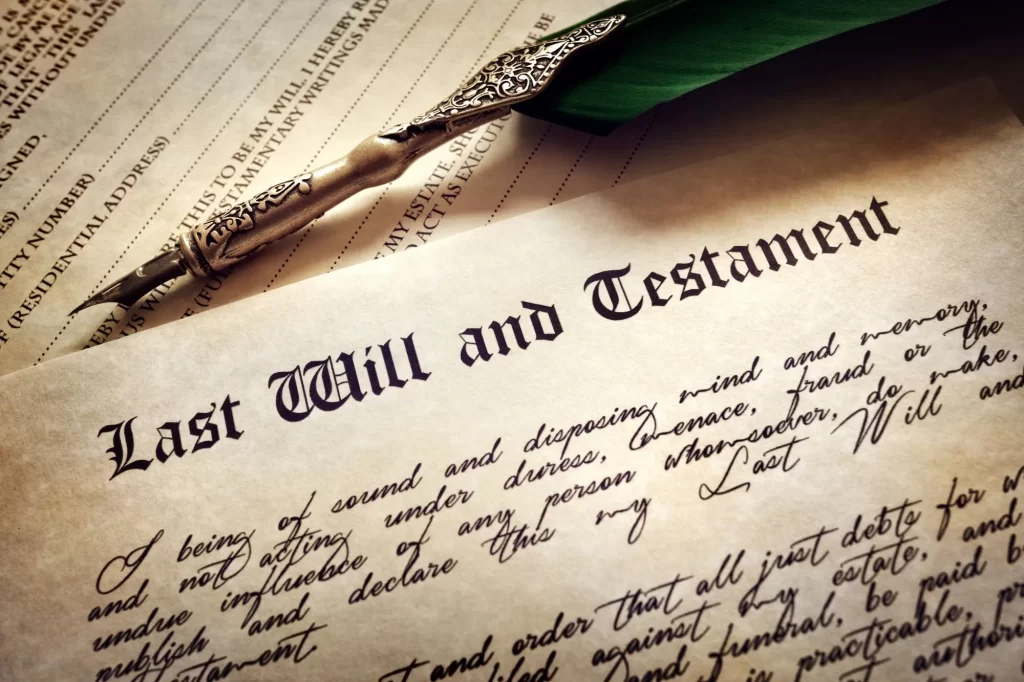
Wills vs Trusts: What You Need To Know For Estate Planning
When doing estate planning, it’s important to consider two options: wills vs trusts. While these two tools are part of estate planning, they are totally different and will serve you in different ways.
So, between wills vs trusts, which option is best for you?
In this article, I will take you through wills and trusts, why they are different, and how you can use either for your estate planning.
Why It’s Important to Have an Estate Plan
Today, a lot of adults say they wish they were ‘trust fund babies.’
But who is a trust fund baby?
A ‘trust fund baby’ is someone who receives financial support from trusts created by their parents to cater to them. Trust fund babies are beneficiaries of estate planning.
Contrary to popular misconception, estate planning is not exclusive to wealthy individuals. Anyone can use estate planning tools to put their affairs in order and make life easier for their loved ones.
Wills and trusts are both legal instruments you can use for estate planning. Although they have a common goal, they serve different purposes.
While planning, you may decide to combine both tools or use only one.
But first, what are the differences between these two?

What are Trusts?
Trusts are legal vehicles that allow trustees to hold and manage assets on behalf of beneficiaries.
The person who creates and funds a trust is the grantor. An individual or institution appointed to manage a trust is called a ‘trustee.’ People who receive payments from trusts are called ‘beneficiaries.’
There are various types of trusts, and each of them serves specific purposes. Examples of trusts include revocable trusts, irrevocable trusts, and charitable trusts.
Learn more about How to Protect Your Assets with Trusts from Creditors
What is a will?
A will is a legal document used to convey the final wishes of a person. You may use one to hand down your wishes regarding your assets.
Wills are also tools to designate guardians for minor children and pets.
The several types of wills include testamentary wills, joint wills, and hand-written wills.

Wills vs Trusts: What are the Specific Differences Between?
When and How They Take Effect
A will only become effective at death. If you write a will and you later become incapacitated, your prospective heirs would not be able to assume ownership of your assets till your demise.
In contrast, trusts become active as soon as they are created. Transferring ownership of your assets to a trust can allow your beneficiaries to enjoy them while you are still alive.
For this reason, trusts have a better advantage as you can use one to hedge against future incapacitation.
Simplicity
Wills are relatively simple documents meant to convey your final intentions. The only bottleneck is that local laws may require probate before your will becomes binding. You should also note that a will does not offer total control of your assets.
In comparison, trusts are more complex and more expensive to set up. You can use them to plan for complex matters. Examples of such complexities include second marriages and stepchildren.
Confidentiality
When a will goes through probate court, everything about it becomes public information. Also, if you die without a will, your assets would be subjected to the intestacy laws of the area where you live, bringing your affairs to public purview.
In contrast, trusts offer some level of confidentiality as they do not go through the probate process. Therefore, the details of a trust do not have to be made public.
Contestability
In most countries, wills must meet certain legal conditions to be valid. For example, a final testament made by a person with a questionable mental state is invalid.
If a relative feels cheated by the will, they may contest its validity in court.
Where a court annuls a will, an earlier ‘will’ becomes the valid will. In the absence of an earlier ‘will,’ the estate will become subject to intestacy laws.
In contrast, trusts are less likely to be contested in court as they become operational immediately. They are also more complex, making them more unlikely to be challenged successfully.

Tax Benefits
A will does not offer you any tax benefits. Apart from this, depending on the jurisdiction you live in, inheritance taxes can be substantial. In fact, in some countries, the estate tax can be as high as 55%.
On the other hand, irrevocable trusts can help you avoid estate tax. When you transfer assets to irrevocable trusts, the legal ownership of the asset gets transferred to the trust.
Beneficiaries who receive payments from the trust do not have to pay inheritance tax as there is no actual ‘inheritance.’
Protection of assets from creditors or divorce
Life can be uncertain. Relatives named in a will may experience divorce or become indebted. Their inherited assets may get taken away from them if any of these happens.
Irrevocable trusts protect assets from creditors.
Upon transferring assets to a trust, such possessions are off-limits to creditors since the relative does not own them.
Creditors and the divorce process would be limited to assets outside the trust.
Precedence
In certain situations where both estate planning tools are combined, discrepancies may occur between the information contained in a will and the information contained in the trust.
Where this happens, the information in the trust takes precedence.
Cost
Wills are not as expensive as trusts. Depending on local laws, you can even create one yourself at no cost. Trusts are more expensive. However, they provide a financial advantage by helping your heirs avoid probate and taxes. Probates and taxes can be very expensive.
A solid understanding of wills and trusts is key to making wise estate planning decisions. The choice of your estate planning tool is a significant decision.
If you need further guidance, contact an estate planning attorney. A tax advisor or a financial planner can also give you a second opinion based on the advice you receive from the lawyer.
In Conclusion
Thinking about death can be unpleasant, but death is unavoidable. That’s why having a plan of choosing between wills vs trusts is important. A solid estate plan is one of the best gifts you can give to your loved ones. Your wise decision will save them a lot of emotional distress while providing them with financial stability.






